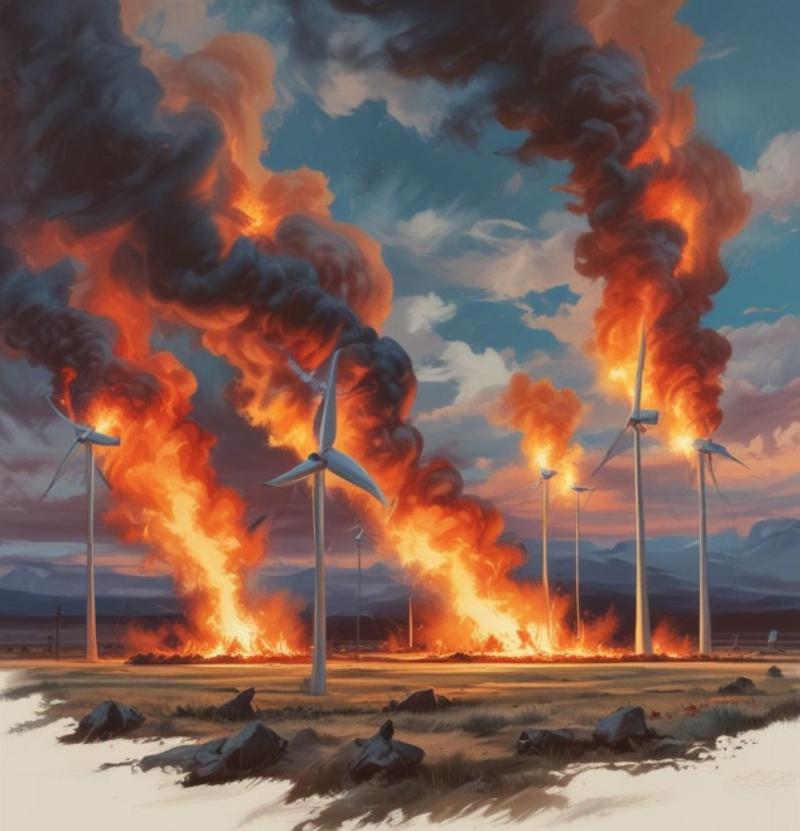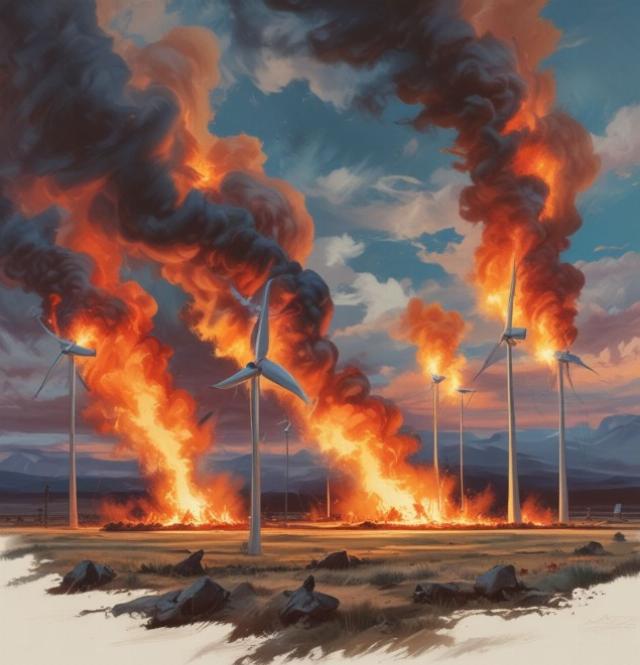


In a recent interview with Sen. Bernie Sanders (I-VT), Joe Rogan touched on the issue of climate change, a favorite talking point for Sanders.
Predictably, Sanders insisted that climate change is not a “hoax.” To this, Rogan raised some of the problems with the common media and political narratives surrounding claims of a climate crisis. The exchange reminded me, though, that despite how silly and absurd climate alarmists look to most of us, the way they have structured the climate debate is pretty smart.
How frustrating is it when they say things like “climate change is real,” or, as Sanders told Rogan, “climate change isn’t a hoax,” with such gravity?
Yes, climate change is real. This beautiful planet we are blessed to call home has multiple types of climate regions and they all constantly change in one way or another, both subtly and sometimes dramatically, over time. Stasis has never existed on Earth. Change is the natural order. An unchanging planet is a dead rock -- deader than dead, because even other lifeless planets in our solar system experience seasons and long-term changes. Thus, climate change is not a hoax.
But that’s not what alarmists mean when they say, “climate change.”
When President Trump says climate change is a hoax, he is obviously not saying that natural climate change does not happen, he may not even be asserting that humans have no impact.
Climate change, in the way activists, the media, politicians, and many scientists commonly use it, comes loaded with a presupposition that it is an unnatural change. Specifically, that most of the warming of the past century or so is anthropogenic -- originating from human activities like farming and driving cars -- and that such change is an existential threat. In short, one can accept the fact that climate change is a natural phenomenon and still be called a climate denier if you don’t agree with people like Sanders, who declare that windmills, solar panels, electric vehicles, and global socialism are the only proper responses to the changing climate.
To those who value truth and precision, this is aggravating because it is incomplete, vague, and for all intents and purposes, false.
This is by design, and I think it is mostly tied to the utility of the “denier” label.
It allows interested parties to dismiss people who don’t take a very narrow view of the subject and ostracize scientists who disagree even marginally from the dominant narrative. The truth of the matter is that the science is not settled. Every single element of the anthropogenic climate change theory is up for debate, with varying degrees of disagreement.
It is also dangerous. For example, people in positions of power, like former U.S. Attorney General Loretta Lynch and Sen. Sheldon Whitehouse (D-RI), have expressed interest in prosecuting “climate deniers.” They want to intimidate freethinkers who “follow the science,” while ignoring the fact that we live in a constitutional republic, not a scientific dictatorship.
The facts and data don’t dictate a particular course of action. How to respond to the information, if we even need to, is a decision for individuals and sometimes the political realm. This should be based on our values and an understanding of the trade-offs and risks and benefits of courses of action -- scientists have no particularly valuable expertise or insights above the rest of us when making such decisions.
Because the term “climate change” is so nebulous and ubiquitous, anything connected to persecuting or suppressing critics of policy surrounding “climate change” can also be shifted as easily as the alarmists want.
It is smart and tactical, and easy to weaponize. It is easy to smear scientists who are skeptical of the dominant narrative by even mere degrees, silence dissent, and possibly worse, without ever needing to clarify the fullness of the alarmist position or defend the often very extreme political policies that come tied to it.
We need to see realist or skeptical politicians and media figures put the alarmists on their back feet by demanding they define exactly what they mean by “climate change” when the term is used. If Joe Rogan had asked Sanders to define the term “climate change” in addition to the other good points Rogan made, we may have been able to see Sanders forced to solidify the term and have his positions questioned in a more direct and devastating way.
We also need to force alarmists to defend the policy fixes they endorse. They need to admit their effects on liberty and economic prosperity, their impacts on people in poorer countries, and they must explain exactly how (or if) those policies will change the climate and weather for the better. They need to prove it on time scales where they can actually be held accountable. They need to tell us how much temperature and sea level rise will be prevented, how many lives saved, etc., rather than accepting their ambiguous assurances that if we end fossil fuel use, the world will magically be a better place.
Linnea Lueken (llueken@heartland.org, X: @LinneaLueken) is a research fellow with the Arthur B. Robinson Center on Climate and Environmental Policy at The Heartland Institute.

Image: AT via Magic Studio
